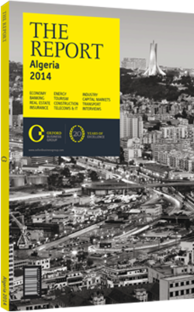Jean-Marc Ayrault, Former Prime Minister of France, on strengthening the relationship between France and Algeria

Franco-Algerian relations have evolved positively since President François Hollande’s visit in 2012. This does not mean that both countries have overcome their issues, but I believe relations are heading in a new direction and in a new context. We have turned a corner and, as President Hollande said, we do not have to sidestep the reality behind Algeria and France’s historical relationship. Both countries are on a clear course of action to relaunch a partnership for the better. Commercial ties are a strong pillar of the bilateral relationship’s new chapter.
We often speak of France’s role in Algeria’s economic development. It is important to consider our role as going beyond that of the supplier, to that of the partner. We are working together with Algeria to build a well-balanced economy that does not rely solely on its energy resources. We aim to create a dynamic economy and enhance value addition. This is clearly in the best interests of Algeria, but it is also in the best interests of France, and that is why we have discussed the issue of cooperation in education, research and the mobility of people.
We have seen considerable growth in all of these areas compared to just one year ago, and particularly since the creation of the high-level intergovernmental committee, which met for the first time on December 16, 2013. The aim of this committee is to facilitate bilateral talks and exchanges between the ministers of each of our governments and assess progress in areas spanning commerce and beyond. The high-level intergovernmental committee has only existed for one year, and in that time it has embarked down many new avenues towards establishing a stronger bilateral relationship.
Also one year ago, companies of all sizes, from multinationals to small and medium-sized enterprises (SMEs), formed the Mixed Franco-Algerian Economic Committee, which held its first meeting in October 2013. Many different industries are participating in this committee, which keeps a close eye on a wide range of projects, notably housing, transport, construction, energy, automotive and financial services. Education and training are also important avenues for France to undertake in Algeria, and many win-win opportunities present themselves in these areas. Students are especially eager to enrol in professional and technological programmes that benefit industrial activity, like the automotive sector.
France and Algeria have partnered to make cars in Oran. France’s Renault will gain access to a strong automobile market, while the Algerian National Automobile Company will gain valuable know-how and the technology to manufacture 25,000 vehicles a year near Oran. Renault will own 49% of the venture and the Algerian National Automobile Company will own the remaining 51%. The goal is to shift some of the research and development (R&D) and production, currently carried out in France, to Algeria.
France will continue the production and R&D behind certain components of the automobiles, but the factory in Algeria will offer direct and indirect employment, both within the factory and with contract manufacturers. The culmination of these efforts will result in an important step towards consolidating an industrial base that will continue to gain momentum and attract investment. It is not just the automotive sector that is drawing attention either, with many participants eyeing opportunities across new fields. We call this strategy co-localisation, and it will develop the capabilities of local business, both large companies and SMEs, which will be contracted to build different parts of the cars in Algeria.
I was asked if France was able to meet its commitments vis-à-vis Algeria, especially in the economic field, because France is in crisis. It is true that France, like many other countries, has experienced a profound change. But when I see the strength of our businesses and French initiatives worldwide, sometimes in the most remote areas, then I say that France does have the capacity to meet its commitments.
You have reached the limit of premium articles you can view for free.
Choose from the options below to purchase print or digital editions of our Reports. You can also purchase a website subscription giving you unlimited access to all of our Reports online for 12 months.
If you have already purchased this Report or have a website subscription, please login to continue.

